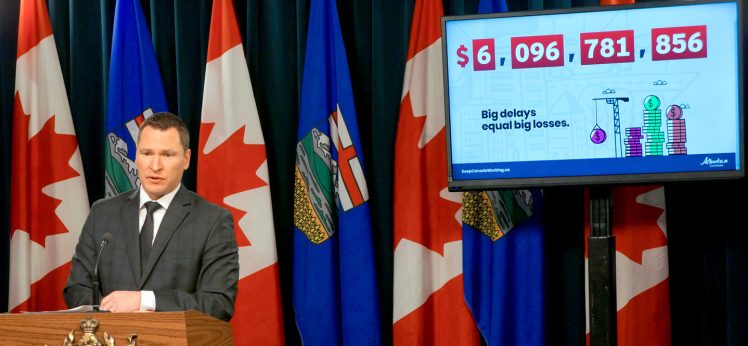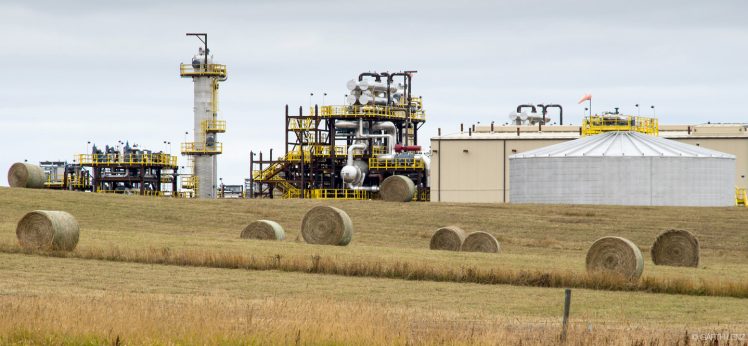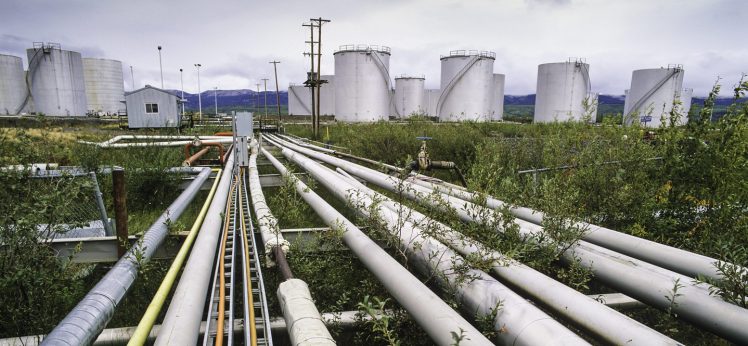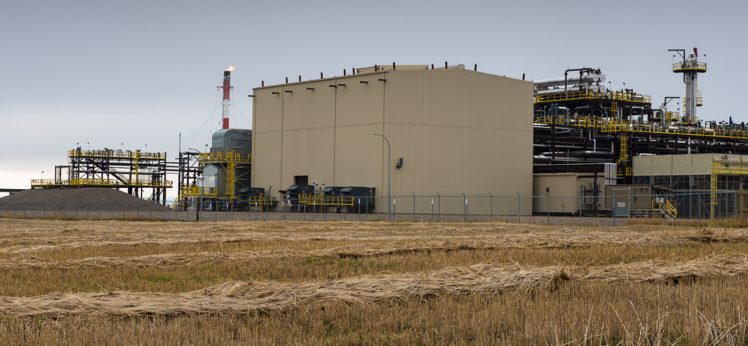
Indigenous Gendered Experiences of Work in an Oil-Dependent, Rural Alberta Community
by Angele Alook, Nicole Hill & Ian Hussey | February 21, 2019
Alberta’s oil sands industry is often touted as driving the economy of both the province and Canada as a whole. However, Indigenous people in the oil sands region do not necessarily reap the benefits of the industry due to limited land rights, limited access to economic development, and marginalization in the labour market. While there …

Report seeks to address ‘knowledge gap’ about Indigenous oil workers
by Corporate Mapping Project | February 21, 2019
EDMONTON – A new report released today by the University of Alberta-based Parkland Institute is a first step in beginning to address the dearth of research and knowledge about the lived experiences of Indigenous workers in northern Alberta’s oil sands region. Indigenous Gendered Experiences of Work in an Oil-Dependent, Rural Alberta Community is a mixed-methods …

False advertising by the Alberta government and oil lobby
by David Hughes | February 20, 2019
As an Alberta-born and -raised earth scientist who has made a career studying fossil fuels and energy issues, I am dismayed at the bombardment of ‘fake news’ in print, online and TV ads from the Alberta government on the Trans Mountain Pipeline Expansion (TMX). These ads are repeated hourly on several TV stations. One ad …

Through the front door, then the back: How government methodically killed environmental oversight of major gas industry projects
by Ben Parfitt | January 23, 2019
Few regulations in British Columbia have died as quick and ignoble a death as a 2014 Order in Council exempting proposed natural gas plants from having to undergo environmental assessments. It was a change that fossil fuel companies drilling and fracking for natural gas in the northeast of the province had demanded for some time. …

Where is labour’s voice in coverage of pipeline controversies?
by Robert A. Hackett | December 19, 2018
The news media play a strong role in shaping how many Canadians understand issues like climate change—and the tensions between the fossil fuel industry and those seeking to transition to a low-carbon economy. But are the media providing a clear view of the debate surrounding these issues? And are all stakeholders’ voices being heard? Short …

Labour’s voices largely absent from news coverage of pipeline controversies: Study
by Corporate Mapping Project | December 19, 2018
VANCOUVER—A new study finds that BC’s news media frequently reinforce the assumption that there is an inevitable trade-off between environmental protection and job creation. Released today by the Canadian Centre for Policy Alternatives and Corporate Mapping Project, Jobs vs the environment? Mainstream and alternative media coverage of pipeline controversies analyzes over 300 recent articles about …

Image: Whose voices are missing from pipeline debates?
by Corporate Mapping Project | December 19, 2018
“Fossil fuel proponents often claim their support for the industry is connected to the needs and interests of energy workers—and our news media repeat and reinforce this claim, bringing it to the fore of public and political debates. But largely absent are the voices of actual workers and their unions; in the news media, their …

Jobs vs the Environment? Mainstream and alternative media coverage of pipeline controversies
by Robert A. Hackett and Philippa R. Adams | December 19, 2018
Much of the argument advanced in support of expanding Canada’s fossil fuel production centres on job creation and economic benefits. Politicians, pundits and corporate spokespeople who support fossil fuel infrastructure projects—such as new oil and gas pipelines—often evoke this rhetoric when they appear in the media. This study examines how the press—including corporate and alternative …

Seven questions about Alberta’s oil production cut
by Ricardo Acuña | December 6, 2018
On Sunday evening Alberta Premier Rachel Notley announced to the province that her government was legislating a temporary 8.7 per cent cut in the production of bitumen and conventional oil starting January 1, 2019. To the degree that the current price differential is the result of an excess supply of bitumen in the face of …

Oil sands ‘Big Five’ making billions despite oil price crash and pipeline delays, new report shows
by Corporate Mapping Project | November 7, 2018
EDMONTON – As debate continues to rage over pipelines and the current price differential for Alberta’s oil, a new Corporate Mapping Project report analyzes how the five companies that dominate the oil sands sector have fared during the recent boom-bust commodity cycle. “Despite the 2014 oil price crash and the ongoing hand-wringing over pipelines and …

Boom, Bust, and Consolidation: Corporate Restructuring in the Alberta Oil Sands
by Ian Hussey, Eric Pineault, Emma Jackson and Susan Cake | November 7, 2018
This report analyzes the economics of the five largest bitumen extractive corporations in Canada. The “Big Five” are Suncor Energy, Canadian Natural Resources Limited (CNRL), Cenovus Energy, Imperial Oil, and Husky Energy. The report examines the key features of the five firms and analyze their accumulation dynamics in the context of the latest commodity cycle: …

Shielding fossil fuel corporations from public scrutiny: The new “neutral”?
by Ben Parfitt | October 31, 2018
British Columbia’s Environmental Assessment Office bills itself as a “neutral” provincial agency. But there is evidence that this is not the case, and that BC Environment Minister George Heyman — who is tasked with “revitalizing” the province’s environmental assessment law — needs to make serious reforms. When a public regulator makes major decisions behind closed …











